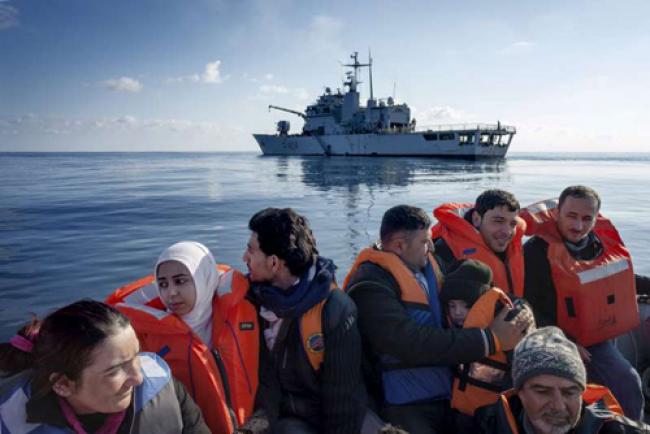Adrian Edwards, spokesperson for the UN High Commissioner for Refugees (UNHCR), told reporters in Geneva that at least 17 people drowned Monday after a boat sank in international waters between Lampedusa, Italy, and Tripoli, Libya.
Two merchant ships from France and Vanuatu rescued 226 people who later received medical checks by Italian doctors.
Monday’s tragedy follows several shipwrecks off the Libyan coast over the past fortnight, in which 121 people are believed to have died in three separate boat accidents.
The Libyan coast guard has rescued 134 people.
“Shipwreck victims and survivors include people fleeing violence or persecution in their homelands and the risks they take on these perilous sea journeys reflect the limited safe options available in Libya and other contexts,” said Edwards.
The Executive Director of the UN Office on Drugs and Crime (UNODC), Yury Fedotov, said the most recent deaths follow the same tragic pattern as last year’s incident in early October when some 365 migrants drowned off Lampedusa when their boat capsized.
“To stop migrant smuggling the international community needs to take firm action,” he said in a statement, adding that as a first step, countries can ratify the Protocol on Smuggling of Migrants. “So far, 138 countries have done so, but for a truly integrated response every country must become a party, and also criminalize smuggling.
“But more is needed,” he added. “Countries can use the Protocol to develop international action against the smuggling of migrants by promoting cross-border cooperation, exchanges of information and joint operations to break-up the criminal networks.”
Coordinated action also needs to be taken by the international community to track and seize the profits of migrant smuggling, the Executive Director stated, stressing that no one should be allowed to profit from the desperate desire of others to seek a new life and a fresh start.
UNHCR has launched an information campaign in association with the Libyan coast guard, non-governmental organizations, UN partners and asylum-seekers to inform people of the real risks involved with voyages by sea.
The agency said it welcomes the rescue operations by Italian and Libyan authorities and the cooperation of private vessels without which the recent death toll would have been undoubtedly higher.
At the same time, it asked that search and rescue operations are further strengthened, especially in waters that have a high number of incidents.
“We also urge governments around the world to provide legal alternatives to dangerous sea journeys, ensuring desperate people in need of refuge can seek and find protection and asylum,” Edwards stated.
These alternatives could include resettlement, humanitarian admission, and facilitated access to family reunification.
Governments are also asked to resist punitive or deterrent measures such as detention for people seeking safety.
UNHCR estimates that over 170 people have died at sea trying to reach Europe so far this year, including those who lost their lives in waters off Greece, Libya, Italy and in international waters.
Syrian refugees are rescued in the Mediterranean Sea by the Italian navy. UNHCR is concerned about the number of vessels sinking in the attempt to reach Europe. Photo: UNHCR/A. d'Amato
